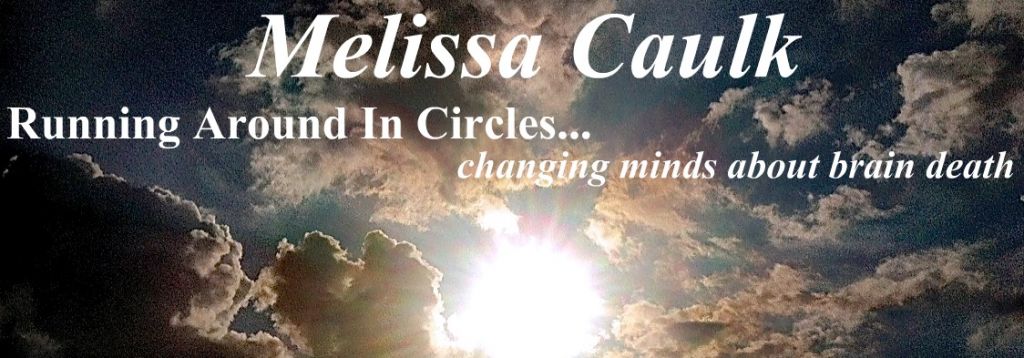Non-Heart Beating Donors
I have written quite extensively on organ donation. Since this blog is a prelude to the book coming out in October I want to write about non heart beating donors. (NHBD)
In April of 1997, Mike Wallace of 60 Minutes did a piece on “Are surgeons taking organs from patients who are not quite dead?” At the end of his piece, Mike Wallace predicted that taking organs from the “not quite dead” or non heart beating donors would go away.
He was wrong.
It has not gone away.
 When we were at Vanderbilt, Mike and I were in with Jamie praying over him. I felt someone in the room and opened my eyes and looked at the foot of bed. There she was…an Organ Requester.
When we were at Vanderbilt, Mike and I were in with Jamie praying over him. I felt someone in the room and opened my eyes and looked at the foot of bed. There she was…an Organ Requester.
What are you doing in here, I asked.
“Well I heard you wanted to donate your son’s organs by having his heart stop beating first.”
No, you heard wrong, I said. I don’t appreciate appreciate you coming in my son’s room and discussing this in front of him, didn’t you see we were praying?” “Now please leave you are not getting one organ from my son.”
Current regulations require hospitals across the United States to notify the Organ Procurement Agencies when a patient is in a coma. If it is a federally funded hospital they can lose their funding if they do not notify them.
The Uniform Anatomical Gift Act (UAGA) assigns explicit priority to the donor’s expressed intent so that consent for organ donation becomes irrevocable and does not require the consent or agreement of any person after the donor’s death.
The donor’s authorization to donate, recorded on an organ donor card, the individual’s driver’s license, or a donor registry, becomes a legally binding advance directive. The UAGA amendment enables OPOs to procure organs without family consent and in certain instances after family refusal to donate.
Organ Procurement Organizations
The OPO at Vanderbilt asked us if they could go ahead and start running tests on Jamie to see if he was suitable for donation.
 My son, Andrew spoke up before any of us could, “No, you are not doing that, you are only hastening my brother’s death, we want him to wake up, you are NOT doing any tests.”
My son, Andrew spoke up before any of us could, “No, you are not doing that, you are only hastening my brother’s death, we want him to wake up, you are NOT doing any tests.”
Organ Procurement Organizations have set goals to get your organs, with an average of 75% being the norm.
The Revised UAGA changes the default “non-donation” with “intent to donate” by presuming that a person automatically wants to donate. In the current default option “intent to donate” everything is done medically to ensure the stability of the patient until the OPO’s can determine the medical suitability of the person as a perspective donor.
However, under mandated consent the OPO’s would not have to even ask or request permission because the removal of organs would be compulsory.
Mandatory consent overrides the health care directive that many wise people have written for their end of life care.
One of the critical issue’s with the non heart beating donor is by waiting 2-5 minutes (depending on which hospital you are in and what their protocol is) overrides the “dead donor rule”. I have posted here that by pronouncing death it rules out that the harvesting of the organs causes the death of the person.
NHBD is a donor whose death is defined by “irreversible cessation of circulatory and respiratory functions” as opposed to “irreversible cessation of all functions of the entire brain, including the brainstem” (Uniform Determination of Death Act, 12 Uniform Laws Annotated 320.
If you believe as I and many other’s do that a brain dead person, is not truly dead, you will still be approached to consider your loved one being a non-heart beating donor.
What to do when you are approached about donation by cardiac death
Prior to donation, the patient will be given heparin and phentolamine (Regitine), they are taken off life support, the heart will stop for 2-5 minutes, or they will check your pulse for just a very few seconds and pronounce you dead. You will be resuscitated, put back on life support and the harvesting will begin.
My recommendation is:
1) Do not allow heparin or phentolamine drugs. Heparin and phentolamine would NOT be drugs given to a patient care unless they were considering organ donation. In certain patients under certain circumstances, these drugs may actively hasten death. They are only used to enhance organ quality.
2) Understand that non-beating heart donation is a way to increase organ donation’s. By removing you from life support before you have died and for some reason can not be called brain dead.
3) Do not let them start to take blood and tissue samples.
4) Do not let them cannulate. This is a when they insert a tube into the artery in the femoral artery and femoral vein prior to withdrawal of life support. Cannulation is done so that organs can cooled and preserved to improve transplant outcomes.
5) Non-heart beating donation is a fall back to get organs when they can’t proclaim brain death.
Journal of Hospital Medicine written by Mohamed Y. Rady, MD, PhD, and Joseph L Verheijde, PhD, MBA and Joan McGregor, PhD. 2007; 2(5):324-334.
Read more at Non-Heart-Beating Organ Transplantation: Medical and Ethical Issues in Procurement











Have something to add?
Trackbacks and Pingbacks:
[…] of what they call it, non heart beat donor, donation by cardiac death or donation after circulatory death it still involves surgeons taking […]
[…] Non-Heart Beating Donors […]